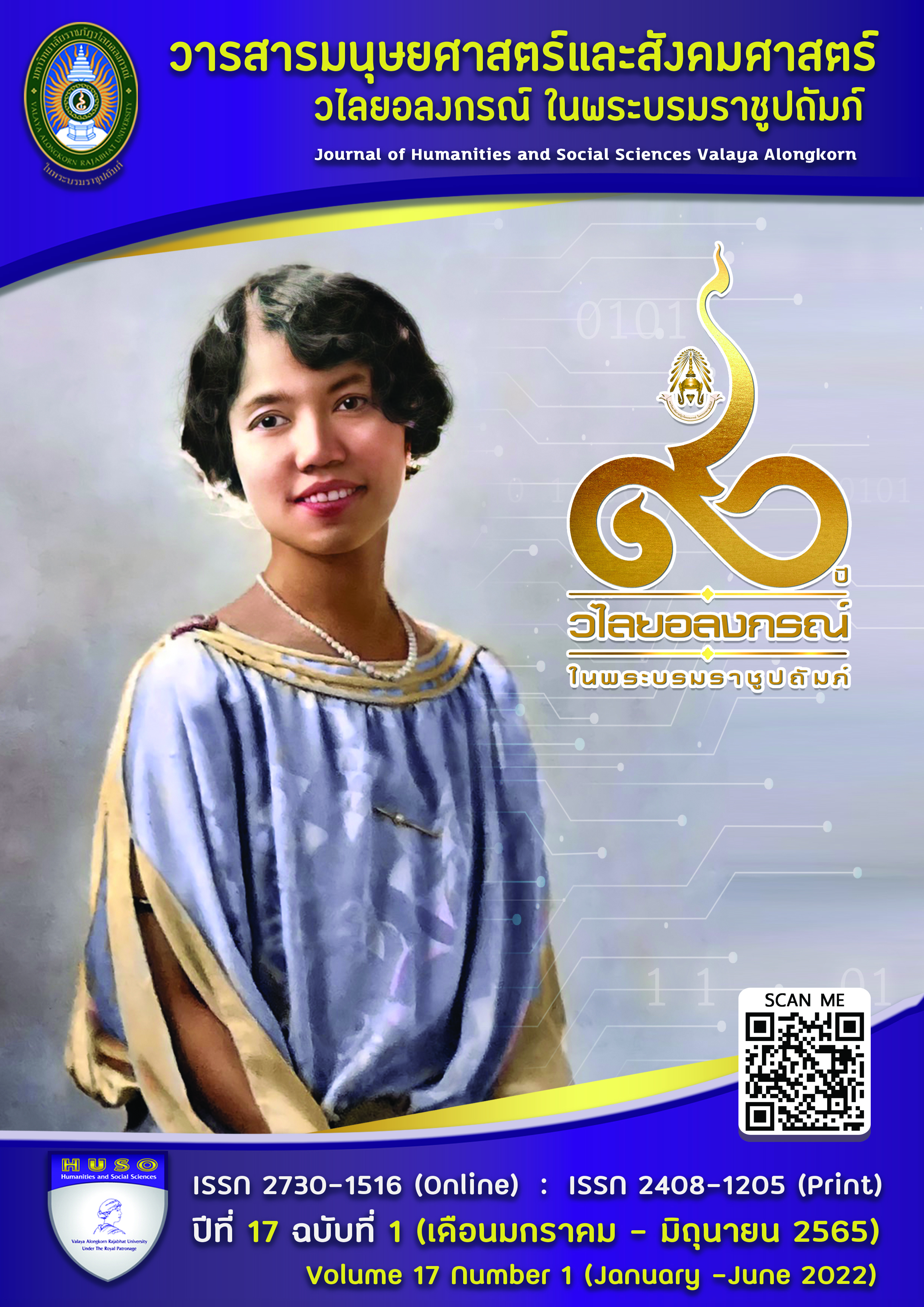AWS AND ETHICS ON END-OF-LIFE CARE: ROLES AND CHALLENGES OF PALLATIVE NURSES
Main Article Content
Abstract
A terminally ill patient is a patient who is mortally injured or has an uncurable disease even and will die if he or she has specialized treatment. This patient is inevitably facing death within a few hours or months. This type of patient also includes brain-dead patients whose brain has permanently lost the ability to perceive and communicate.
Treatment for the terminally ill patients is aimed at minimizing physical pain while spiritual beliefs, traditions and needs of patients and relatives are also met. As a result, palliative care is applied for the terminally ill patient to ensure that the patients and their relatives have a good quality of life during the last period of the patient. Moreover, nursing care for terminally ill patients must be holistic nursing care so the nurse must have medical knowledge about the body and mind of patients who are near death. In addition, they also need to understand the society, traditions, and beliefs of the patients and their relatives about death. What is more, the aim of this article is to study an element of the holistic nursing care on terminally ill patients which are the ethics of nurses and relevant laws of such patients during palliative care.
The study has found that nurses must deal with five ethical dilemmas about terminally ill patients and their relatives which are telling the truth, self-awareness of the patients about near-death state, confidentiality of the patient, cessation of treatment and making choices about treatment of similar condition patients while having a shortage of resources. In addition, there are four related legal issues: firstly, cessation of treatment (which is not considered as neglect of the patient under Article 307 of the Thai Penal Code). Next, helping the patients to pass away peacefully and not facing a murder offence. Thirdly, the will of the terminally ill patients. Finally, a letter of intention on not receiving treatment during the end-of-life period.
Article Details

This work is licensed under a Creative Commons Attribution-NonCommercial-NoDerivatives 4.0 International License.
ลิขสิทธิ์บทความวิจัยที่ได้รับการตีพิมพ์เผยแพร่ในวารสารมนุษยศาสตร์และสังคมศาสตร์ วไลยอลงกรณ์ ในพระบรมราชูปถัมภ์ ถือเป็นกรรมสิทธิ์ของคณะมนุษยศาสตร์และสังคมศาสตร์ มหาวิทยาลัยราชภัฏวไลยอลงกรณ์ ในพระบรมราชูปถัมภ์ ห้ามนำข้อความทั้งหมดหรือบางส่วนไปพิมพ์ซ้ำ เว้นแต่จะได้รับอนุญาตจากมหาวิทยาลัยเป็นลายลักษณ์อักษร
ความรับผิดชอบ เนื้อหาต้นฉบับที่ปรากฏในวารสารมนุษยศาสตร์และสังคมศาสตร์ วไลยอลงกรณ์ ในพระบรมราชูปถัมภ์ เป็นความรับผิดชอบของผู้นิพนธ์บทความหรือผู้เขียนเอง ทั้งนี้ไม่รวมความผิดพลาดอันเกิดจากเทคนิคการพิมพ์
References
กิติพงศ์ อุรพีพัฒนพงศ์. (2558). การทำพินัยกรรมชีวิต (Living Will) สำคัญอย่างไร. [ออนไลน์],
เข้าถึงได้จาก: http://thaitribune.org/contents/detail/307?content_id=16670:
(2564, 28 กรกฎาคม).
สิวลี ศิริไล. (2556). จริยศาสตร์สำหรับพยาบาล. (พิมพ์ครั้งที่ 13). กรุงเทพมหานคร: สำนักพิมพ์
แห่งจุฬาลงกรณ์มหาวิทยาลัย.
แสวง บุญเฉลิมวิภาส. (2560). กฎหมายและข้อควรระวังของผู้ป่วยประกอบวิชาชีพแพทย์ พยาบาล.
[ออนไลน์], (พิมพ์ครั้งที่ 8 แก้ไขเพิ่มเติม), กรุงเทพมหานคร: บริษัทสำนักพิมพ์วิญญูชน จำกัด.
สำนักงานคณะกรรมการสุขภาพแห่งชาติ. (2542) หนังสือแสดงเจตนาเกี่ยวกับการรักษาพยาบาล.
เข้าถึงได้จาก : http://www.thailivingwill.in.th/content/หนังสือแสดงเจตนาเกี่ยวกับการรักษาพยาบาลในวาระสุดท้าย-ของชีวิต: (2564, 28 กรกฎาคม)
สำนักงานวิจัยและพัฒนากำลังคนด้านสุขภาพ. (2562). สิทธิการปฏิเสธการรักษาในระยะสุดของชีวิต
กับปัญหาในทางปฏิบัติของบุคลากร. [ออนไลน์], เข้าถึงได้จาก: https://hrdo.org/:.
(2564, 20 กรกฎาคม).
Aiken TD, Catalano JT. (1994). Legal, ethical and political issues in nursing.
Philadelphia: F.A. Davis Company.
Davis A.J, Aroskar MA. (1991). Ethical dilemmas and nursing practice. Norwalk:
Appleton & Lange.
High DM. Truth Telling. (1989). Confidentiality, and the dying patient: New dilemmas
for the nurse. Nurse Forum. 24(1): 5-10.
Johnstone, M. J. (1995). Bioethics: A nursing perspective. (4th ed.) Sydney: Harcourt Brace.
Jovanovich. McDaniel C. (1998). Enhancing nurses' ethical practice: Development of a
clinical ethics program. Nursing Clinic North America; 33(2): 299-311.
Tschudin. (1988). Nursing the patient with cancer. Cambridge: Pentrice Hall.


